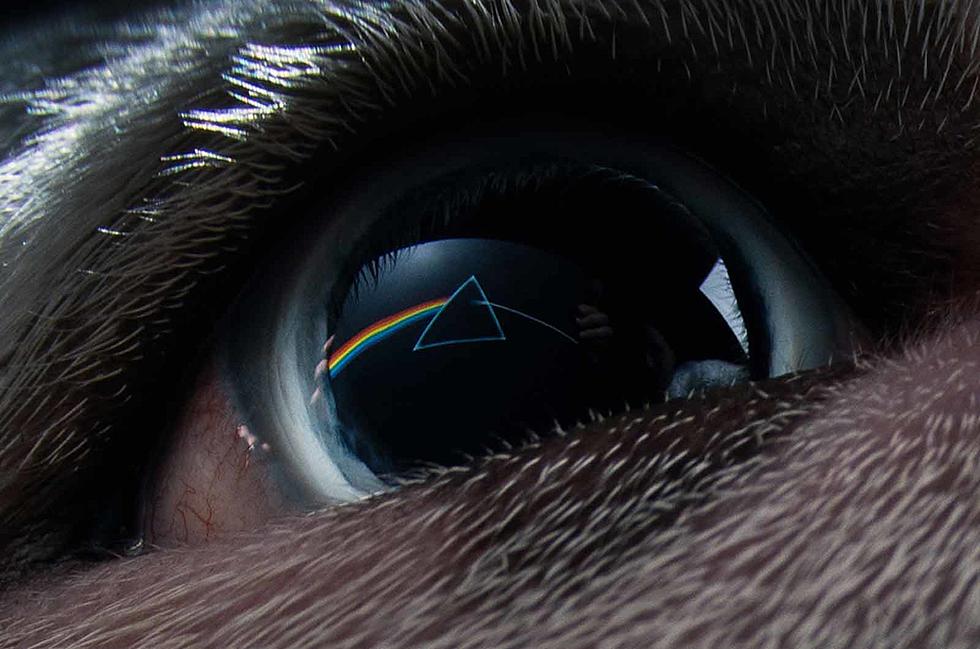
Roger Waters, ‘The Dark Side of the Moon Redux': Album Review
By the time the best-known incarnation of Pink Floyd fell to Earth, Roger Waters had transformed the band into his image. The songs on 1979's The Wall and 1983's The Final Cut often weren't songs at all, but page after page of narrative alongside ever shorter bursts of music. Pink Floyd had become Roger Waters and His Words. He still hasn't learned that some things can remain unwritten, giving imagination and memory the chance to do their work.
Waters' return to 1973's The Dark Side of the Moon pushes Pink Floyd's most dilated triumph out of its earlier, more collaborative era and into the often-disappointing one that ended his tenure. Where there once were graceful intertwining guitar and keyboard lines, he now offers grave, grumbled new commentary. More words. Waters begins The Dark Side of the Moon Redux by uttering a telling phrase: "The memories of a man in his old age ... are the deeds of a man in his prime." He meant it to provide context, as a bruised but wizened author reconsiders subject matter from long ago. But he's also signaling just how subjective and internal all of this will be.
His collaborators on The Dark Side of the Moon Redux seem competent enough, but they've been pushed to the back. Any semblance of the late Richard Wright's quietly involving blend of psychedelia and classical poise is gone, as are David Gilmour's blues-sparked journeys into celestial beauty. Instead, the space is filled with ... more words. The worst offenses are committed upon "Great Gig in the Sky," which plumbed some of the original album's deepest emotional places without the benefit of any lyrics at all. Not here. It's just another track operating in the hushed service of soliloquy after soliloquy. Redux almost stirs awake for Waters' withering criticism of greed on "Money," but the original's pulse-quickening menace remains well outside this LP's grasp. Soon, Waters is talking again, yet somehow not saying much.
READ MORE: Pink Floyd Solo Albums Ranked Worst to Best
A song like "Time," which spoke so perceptively about aging, could have been a centerpiece triumph. After all, these are now words of experience, not youthful projection. But the results are again downshifted to accommodate what is essentially a spoken-word performance. It's probably meant to add a new sense of gravity; instead, "Time" comes off like a pedantic lecture. A notable exception is "Us and Them," where Waters briefly plays it straight. But that's when he reaches this album's next hurdle: its vocals. These may have been Waters' words, but he could never match Gilmour and Wright at the mic. His former Pink Floyd bandmates imbued it all with mystery and resignation, providing the interpretative framework that hurtled Waters' narratives toward something beyond righteous anger.
As the Dark Side song cycle draws to a close, Waters relents once more: "Brain Damage" and "Eclipse" also follow their original lyrical outlines. But only after Waters adds another rambling narrative to "Any Colour You Like," draining all the risk out of the moment like a cartoon super-villain who won't stop monologuing. The Dark Side of the Moon was written by a man in his prime – but it was interpreted and expanded upon by a band in its prime. Together, they completed something best left alone.
Weird Facts About Rock's Most Famous Album Covers
Gallery Credit: Nick DeRiso
Why Pink Floyd’s David Gilmour and Roger Waters Are Still Fighting
More From 105.7 The Hawk










